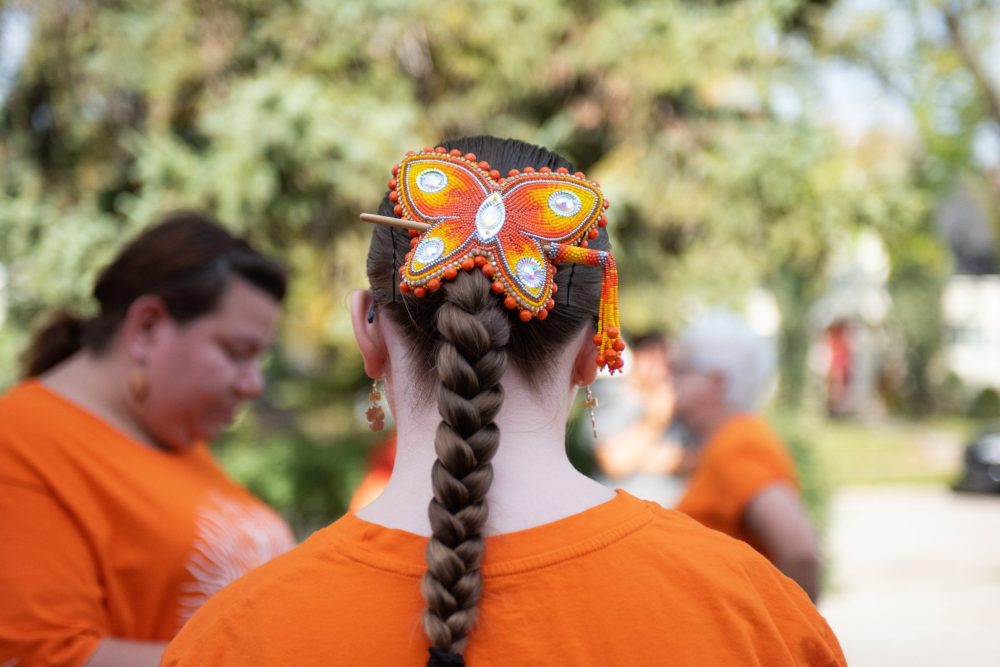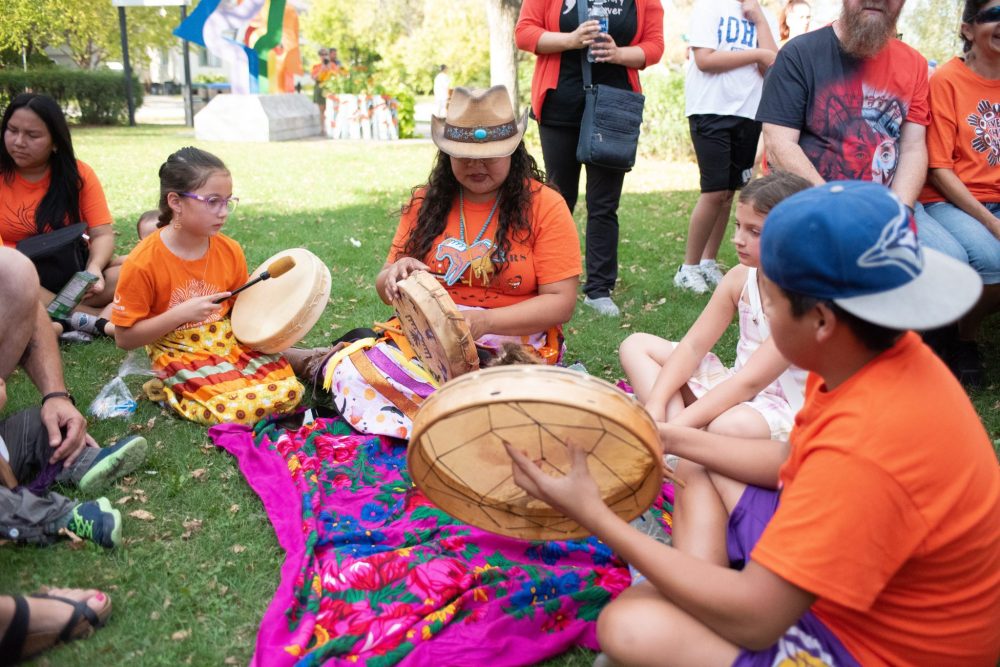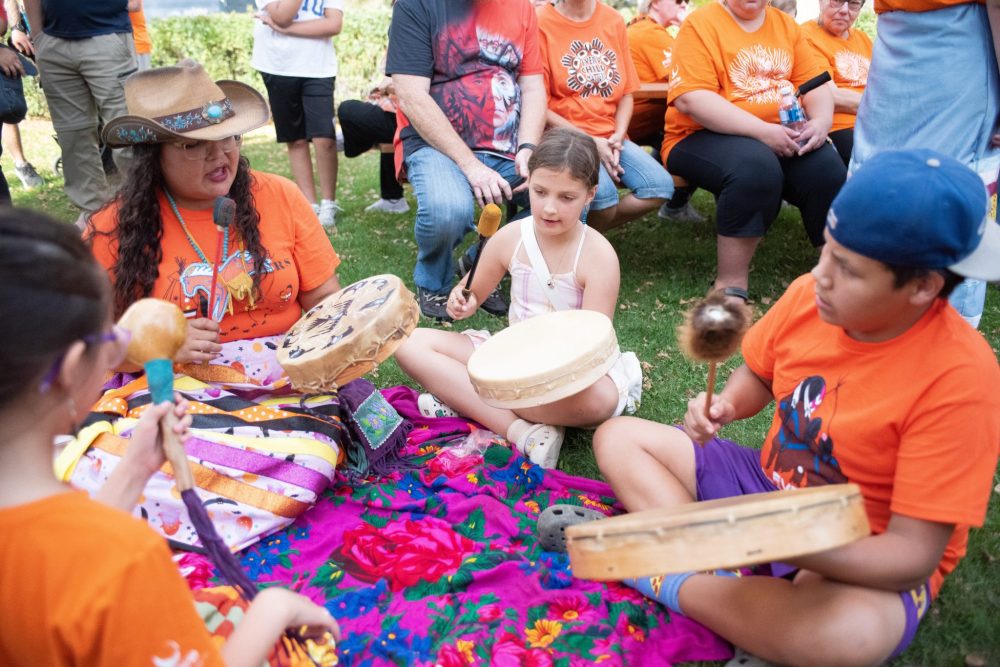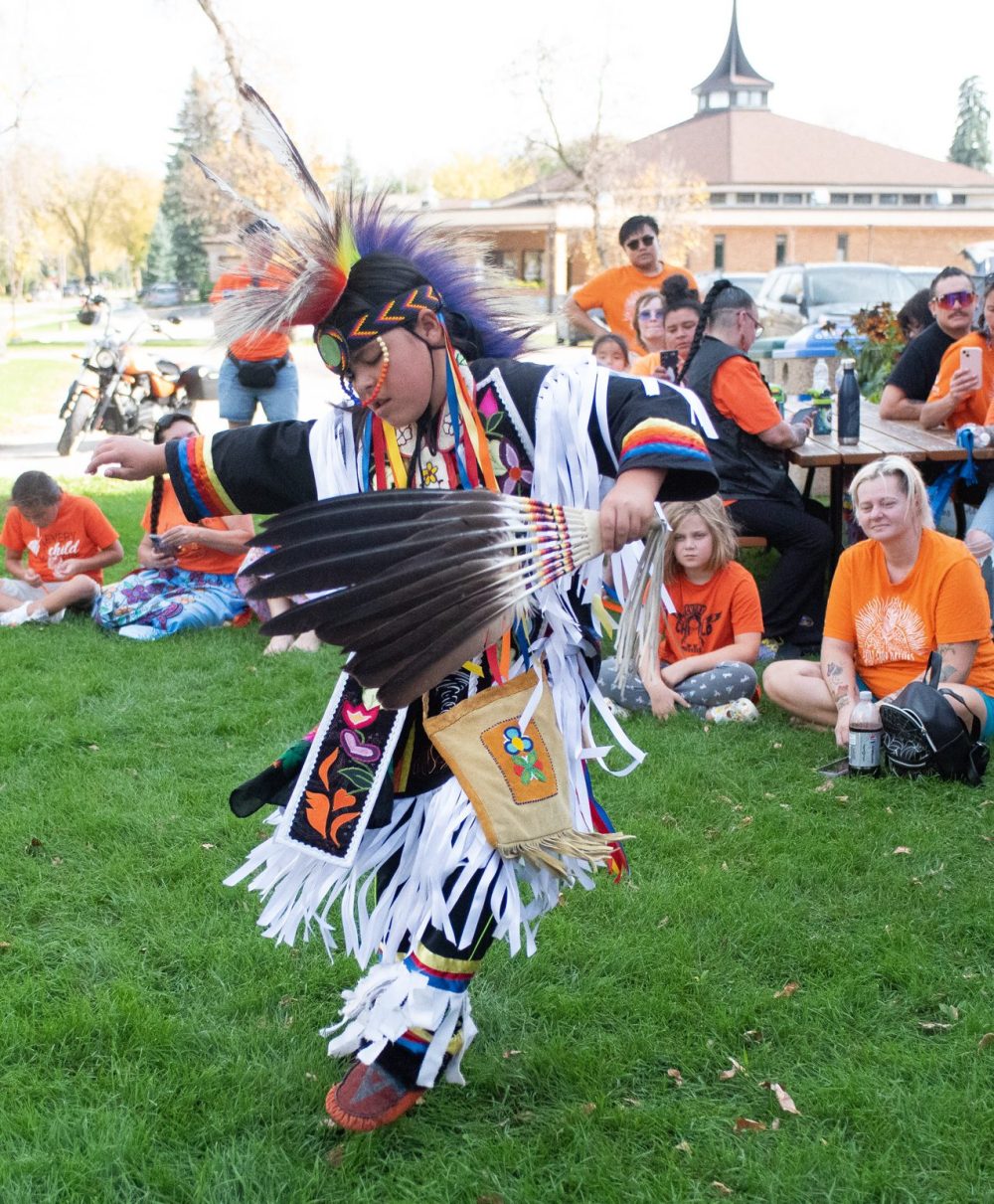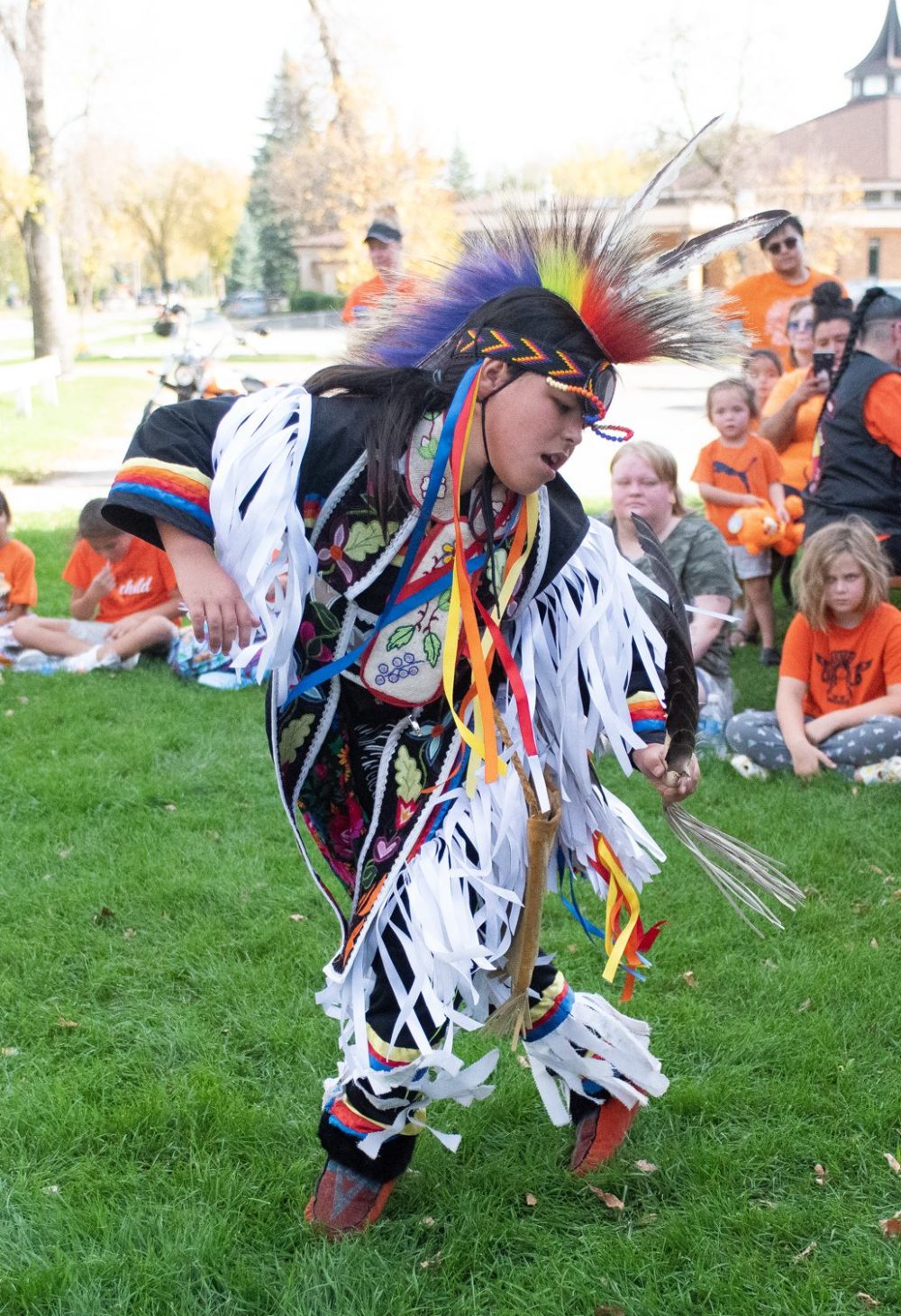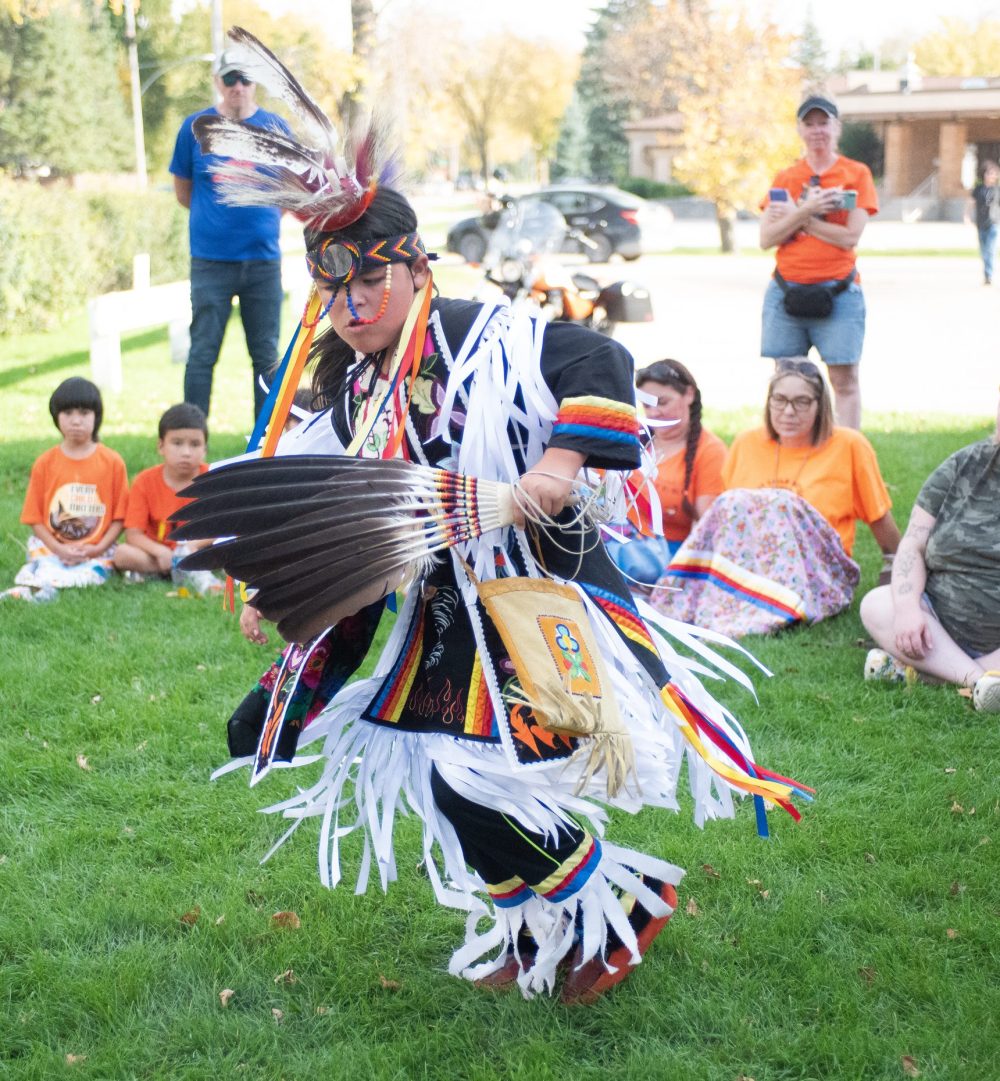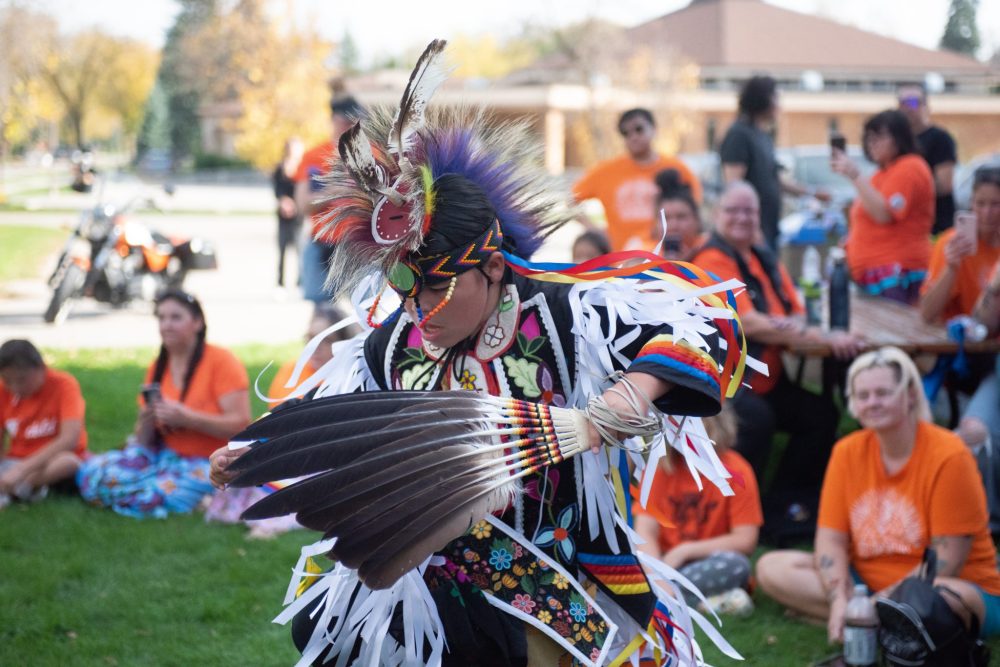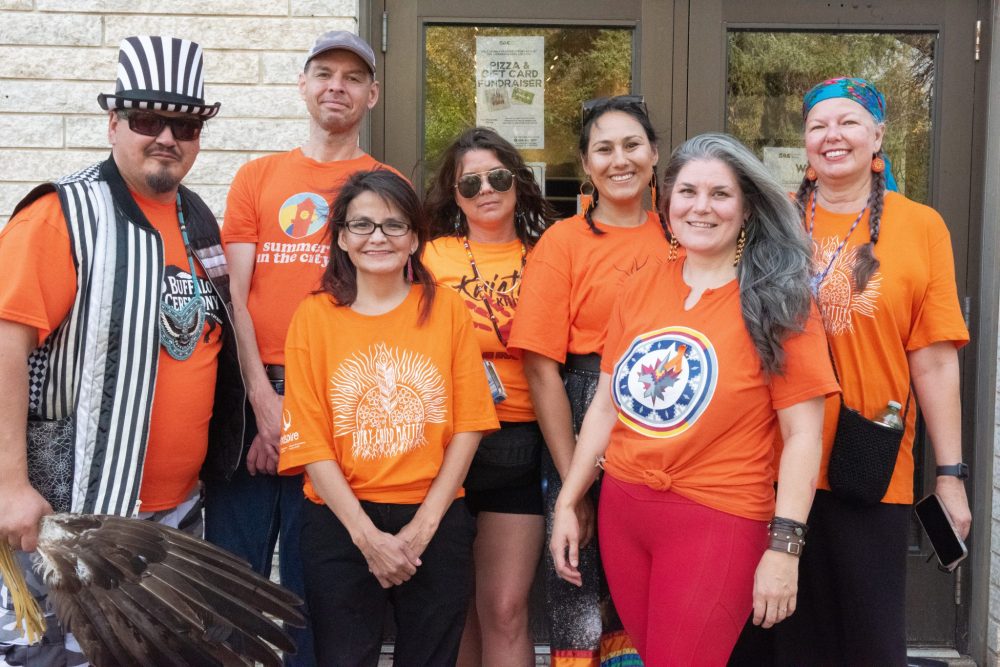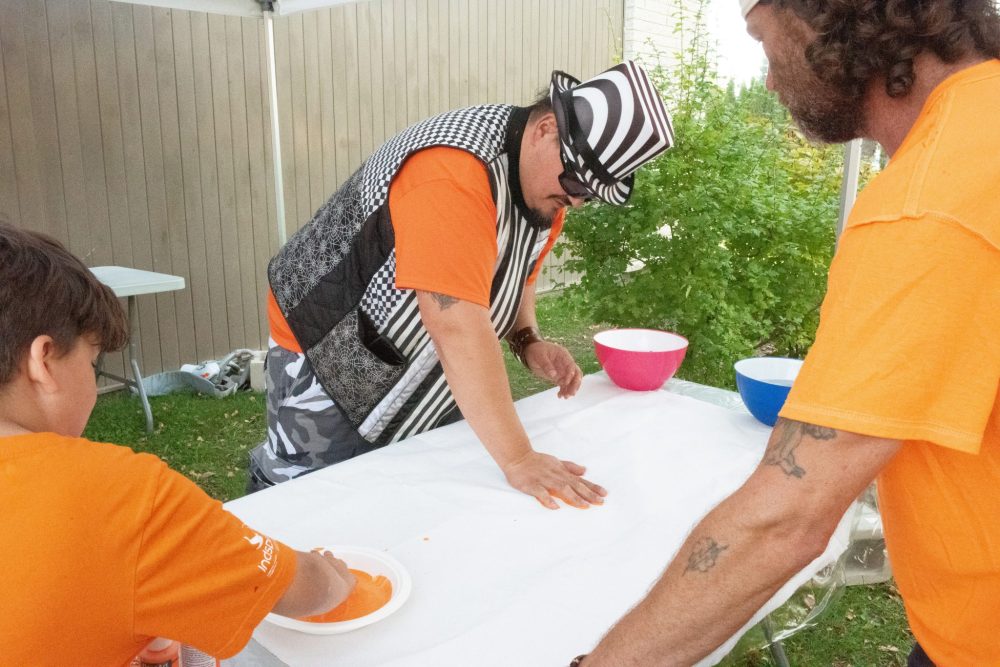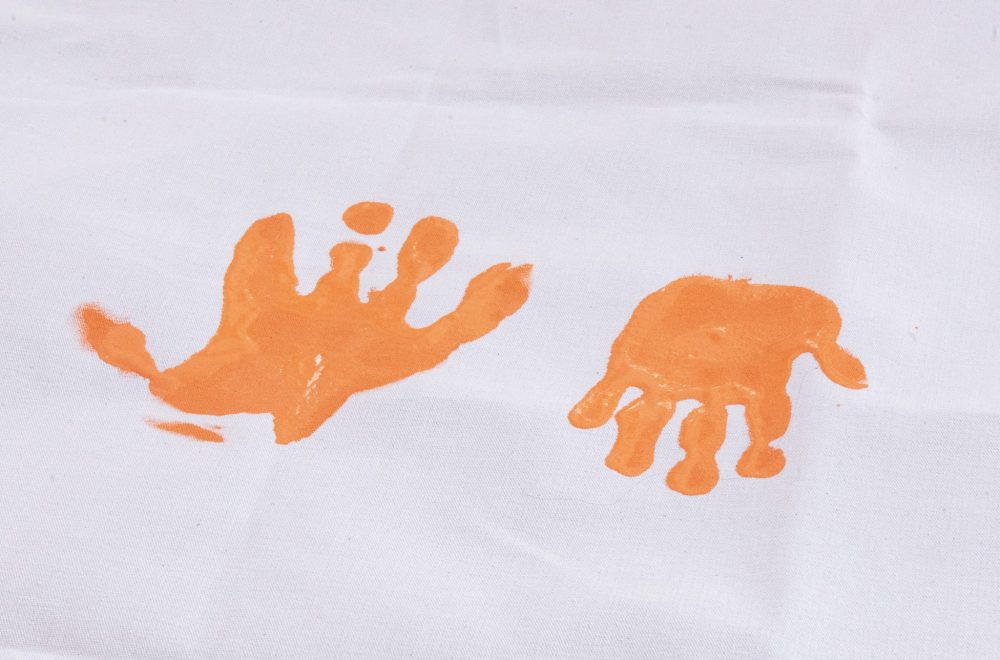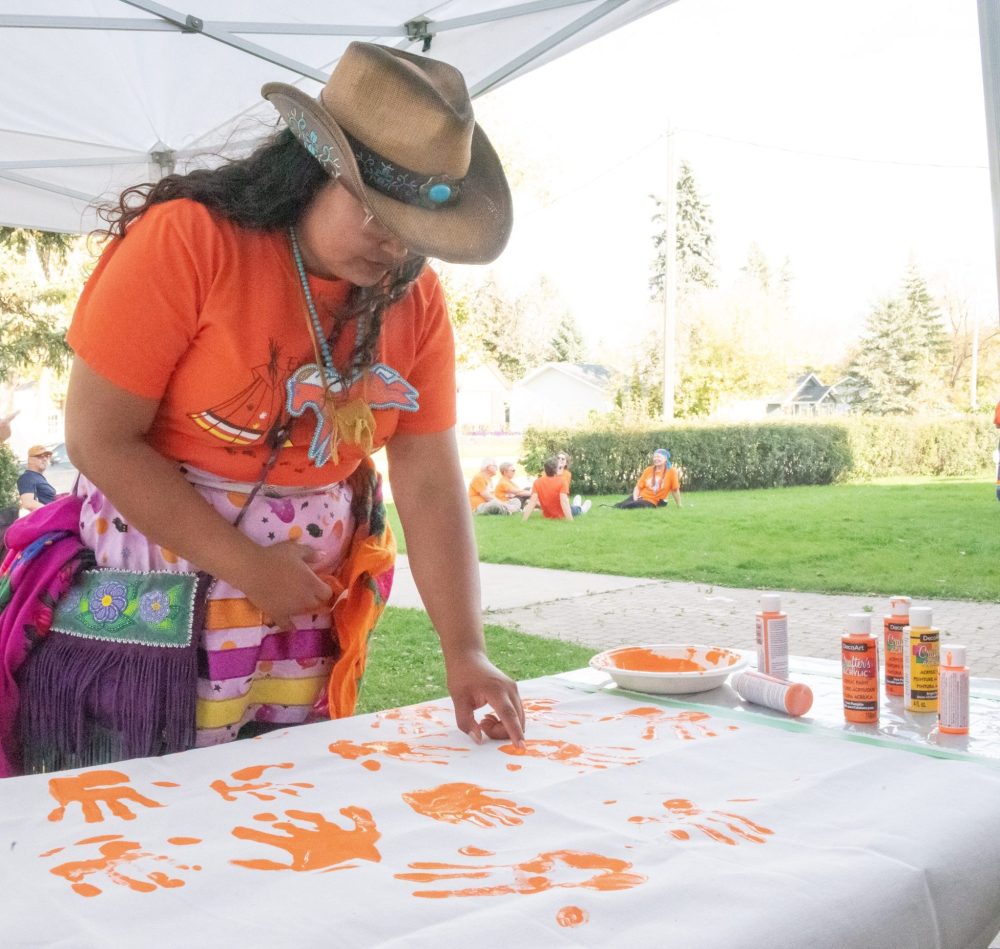Mino Odewin honours Orange Shirt Day with walk
Advertisement
It was a beautiful sunny day on Tuesday as about 100 people came out in support of Mino Odewin’s Orange Shirt Day walk in Steinbach.
“It’s, honestly amazing,” said Mino Odewin co-founder Amy Everett. “We weren’t sure how many people would show up, and just to see everyone here, we met here to prepare at the Steinbach Arts Centre, and then when we went to the city hall and saw the lake of orange, it was just, it’s overwhelming. I was very emotional about this day, and to actually see it happening, and with everyone here, I don’t even have words. It’s just wonderful.”
Orange Shirt Day is held on the National Day for Truth and Reconciliation, Sept. 30. The day is in honour of all the Indigenous children who were taken from their families and placed in residential schools over the course of 140 years. Canada had 139 residential schools, 15 of which were in Manitoba. About 150,000 children were placed in residential schools until 1996 and the Truth and Reconciliation Commission estimated 3,200 children or more died in the system.
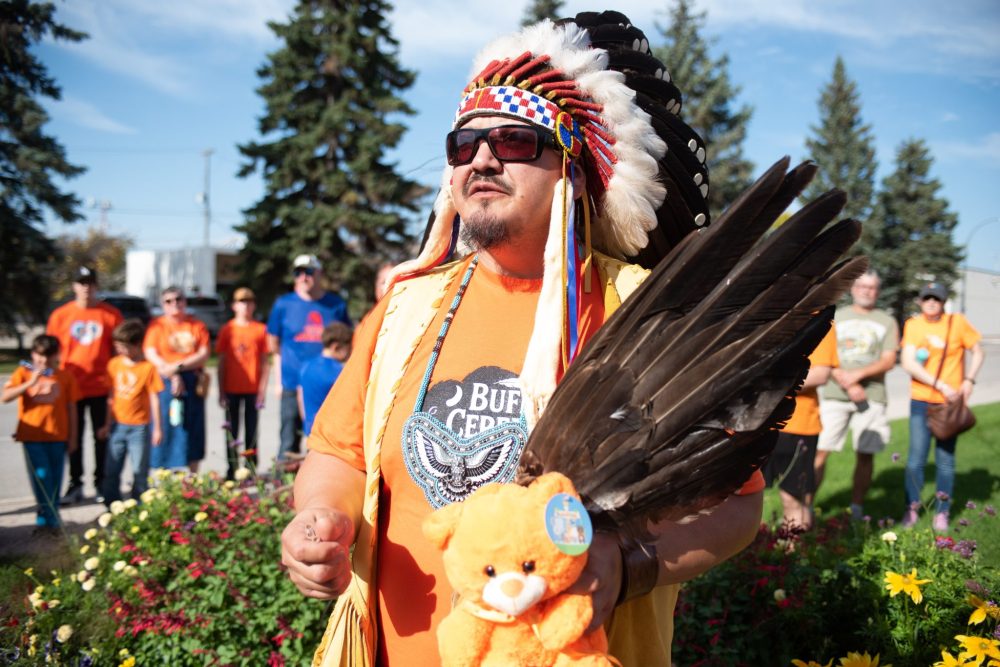
Everett said her father was a residential school survivor and when she thinks of Orange Shirt Day she thinks of him, her children, the fallout of residential schools and how it affected future generations.
She said it took her a while to learn about residential schools and the 60s Scoop and that for her it meant keeping her culture alive every day and making it a part of her life.
“It’s integrating (it) in all parts of my life, and how I raise my kids, and for that to be here alive today, it’s just, it’s amazing, because it just means that we survived, we were resilient, we made it.”
During the opening ceremony for the walk, Rayne Ryle, who has been a traditional singer for four years, drummed and sang the Rainbow Opening Song and said she just chose “what felt good in my heart.”
Mino Odewin cultural coordinator and co-founder Greg Featherman said a prayer and welcomed everyone to the walk.
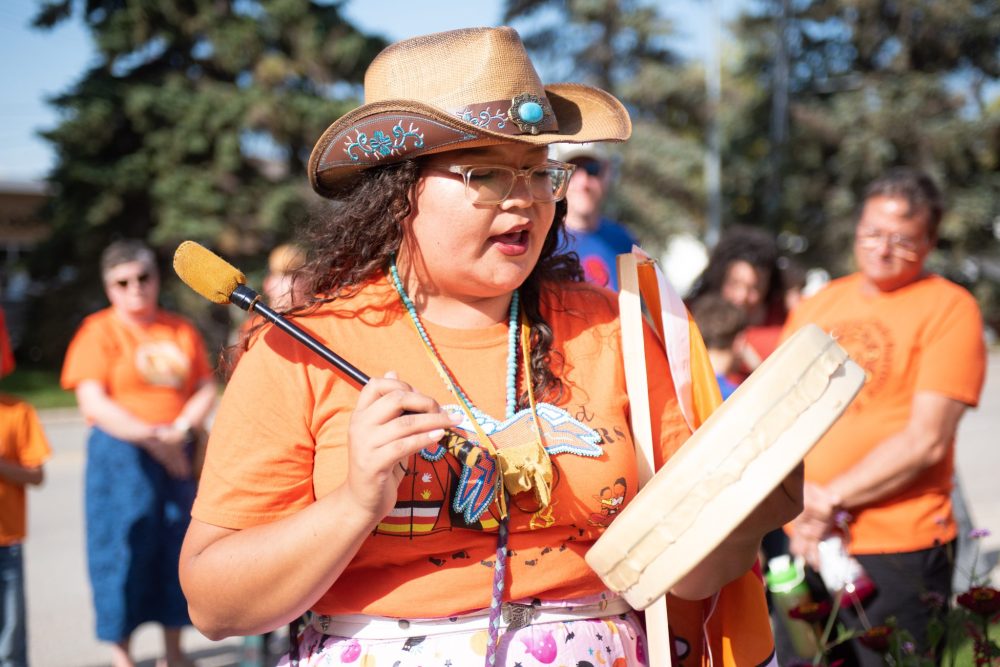
Later, people gathered at Steinbach Arts Centre where a drumming circle was held, and facepainting, traditional dancing, a handprint banner was made, and a feast was had.
Eleven-year-old Theo Osborne from Cross Lake entertained participants with two traditional dances. He gave a speech in which he said truth and reconciliation means to him that non-Indigenous people are learning the truth about what happened to his people and learning about Indigenous ceremonies and way of life “because it’s so beautiful.”
“I think a lot of non-Indigenous people should start coming to our gatherings, more of our ceremonies, because if they did they would see how loving, strong, and amazing our people and culture really are.
“When I come out of a sweat lodge, I just feel so refreshed, full of love, and my heart feels so thankful. Everyone should experience that feeling at least once in their life.”
Drummer Nev Cheages, 14, brought his drum to the walk and was part of a drumming circle afterwards. An Ojibwayan, he said he loves his culture.
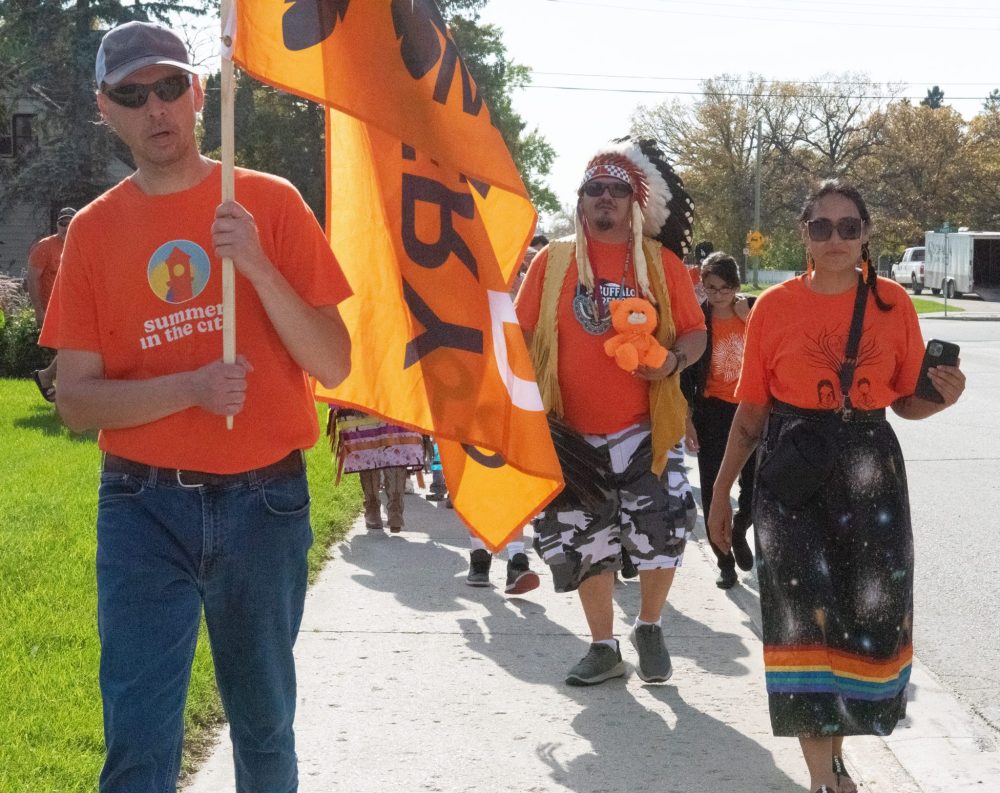
“This is my passion. I love to be with all my people…(Every Child Matters) means to me that every child – Native, white or black people – all the kids mean a lot to me cause I love kids a lot, they have such good hearts and if we don’t have kids, our world would not be here.”
Ukrainian Olga Khula brought her daughter, Solomiia, who is friends with an Indigenous girl and wanted to support and learn more about her friend’s culture.
“We appreciate everything they are doing today and it’s not correct what happened years ago. I’m so proud of her (learning to drum today). She wants to be a part of this community and she wants to understand deeper the traditions of her friend.”
Christine Dean has three Indigenous foster children. She wanted to help them learn about their culture and participate in things that are important to everyone, such as Truth and Reconciliation Day.
“(It means to me) remembering everyone that has passed and follow in the culture that was hidden and tried to be wiped out by the English, which I am.”
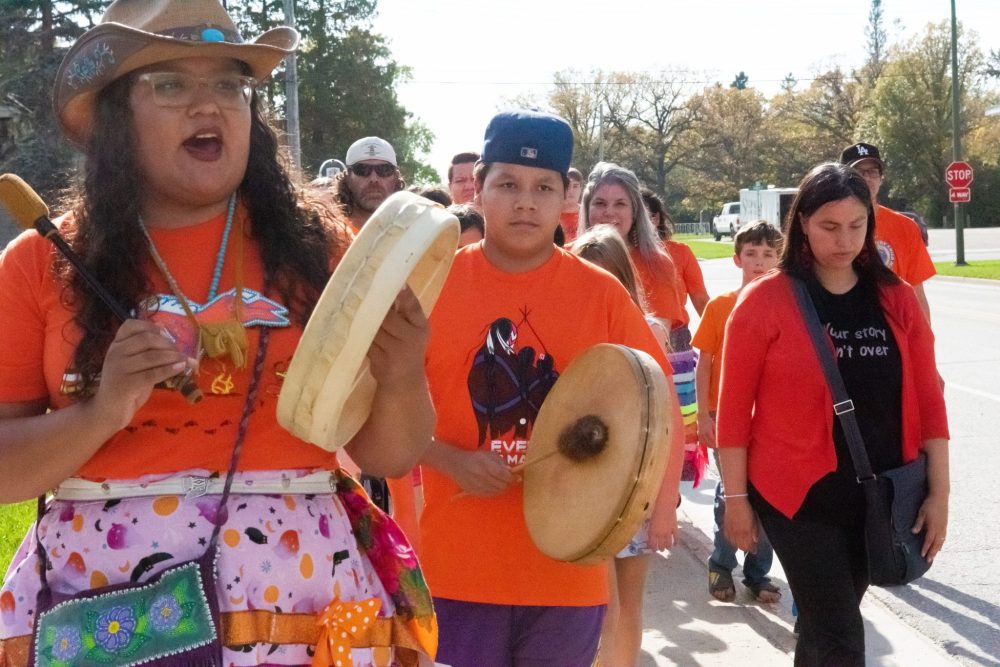
Val Gross, who is Metis, said she came to the walk because it was important as a community to come together “all colours, all nations, everybody.”
“It means to me walking for the ancestors and elders who had it rough and preventing that from happening to my own children in the future.”
